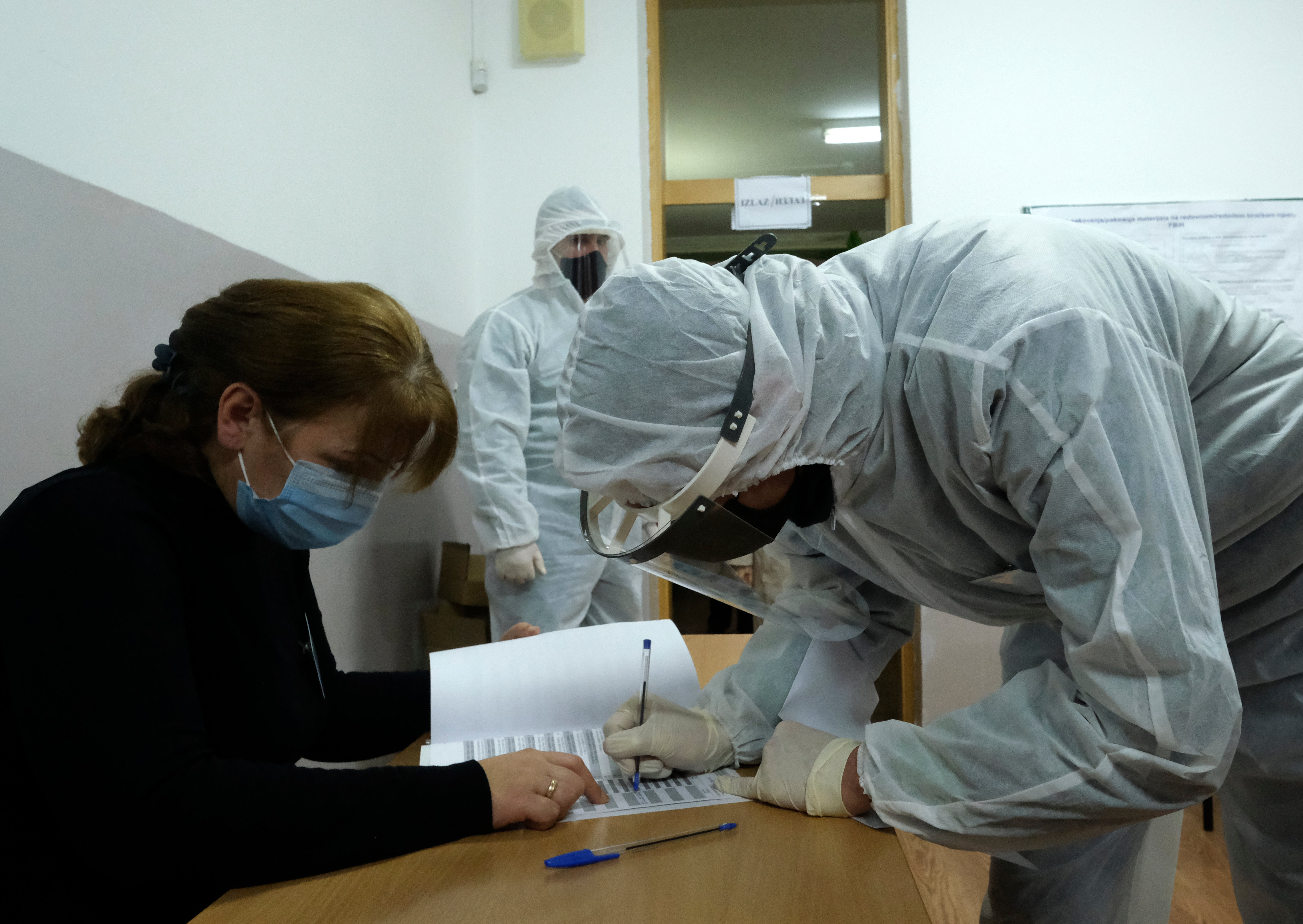Opposition parties win major cities in Bosnia's local vote
Opposition parties have won council seats and mayoral posts in Bosnia's biggest cities in nationwide municipal elections, dealing a painful blow to the long-entrenched nationalists

Your support helps us to tell the story
From reproductive rights to climate change to Big Tech, The Independent is on the ground when the story is developing. Whether it's investigating the financials of Elon Musk's pro-Trump PAC or producing our latest documentary, 'The A Word', which shines a light on the American women fighting for reproductive rights, we know how important it is to parse out the facts from the messaging.
At such a critical moment in US history, we need reporters on the ground. Your donation allows us to keep sending journalists to speak to both sides of the story.
The Independent is trusted by Americans across the entire political spectrum. And unlike many other quality news outlets, we choose not to lock Americans out of our reporting and analysis with paywalls. We believe quality journalism should be available to everyone, paid for by those who can afford it.
Your support makes all the difference.Opposition candidates have won council seats and mayoral posts in Bosnia’s biggest cities, dealing a painful blow to the long-entrenched nationalists in nationwide municipal elections held amid a major surge in coronavirus infections and deaths.
Riding a wave of dissatisfaction with how nationalist and right-wing parties are handling the pandemic, moderates took power in the capital, Sarajevo and the biggest Serb-run town, Banja Luka, as well as in other bigger cities across the country, according to preliminary results released Monday.
Although the Sunday elections were local, it's widely believed they could pave the way for new overall leadership of the small Balkan nation, which has been uneasily split between its three main ethnic groups — Serbs, Croats and Bosnian Muslims — since the end of its devastating 1992-95 war.
Turnout for the vote, held in both of the country’s semi-autonomous regions — the Serb-run Republika Srpska and the Bosnian Muslim-Croat Federation - was 50%, four percentage points down from the 2018 general election.
While the lower turnout has historically benefited Bosnia’s dominant nationalist parties, for the first time in 25 years many of their faithful voters appear to have sat out the vote.
The number of coronavirus cases in Bosnia has been rising sharply in recent weeks, with nearly a third of all infections registered just this month. So far, the country of 3.5 million people has tallied close to 72,000 virus cases and nearly 1,900 deaths, and its death rate continues to rise.
The pandemic has amplified Bosnia’s many problems, including an extreme shortage of doctors and nurses and rampant public corruption. A number of prominent government officials of different ethnic backgrounds are under investigation on suspicion of malfeasance in the procurement of desperately needed medical equipment.
Ahead of the vote in Bosnia’s largest cities, opposition parties despite their ideological differences, closed ranks and campaigned on bread-and-butter issues rather than stoking ethnic tensions. In some cities, including Sarajevo, opposition parties united with a common platform and jointly fielded candidates.